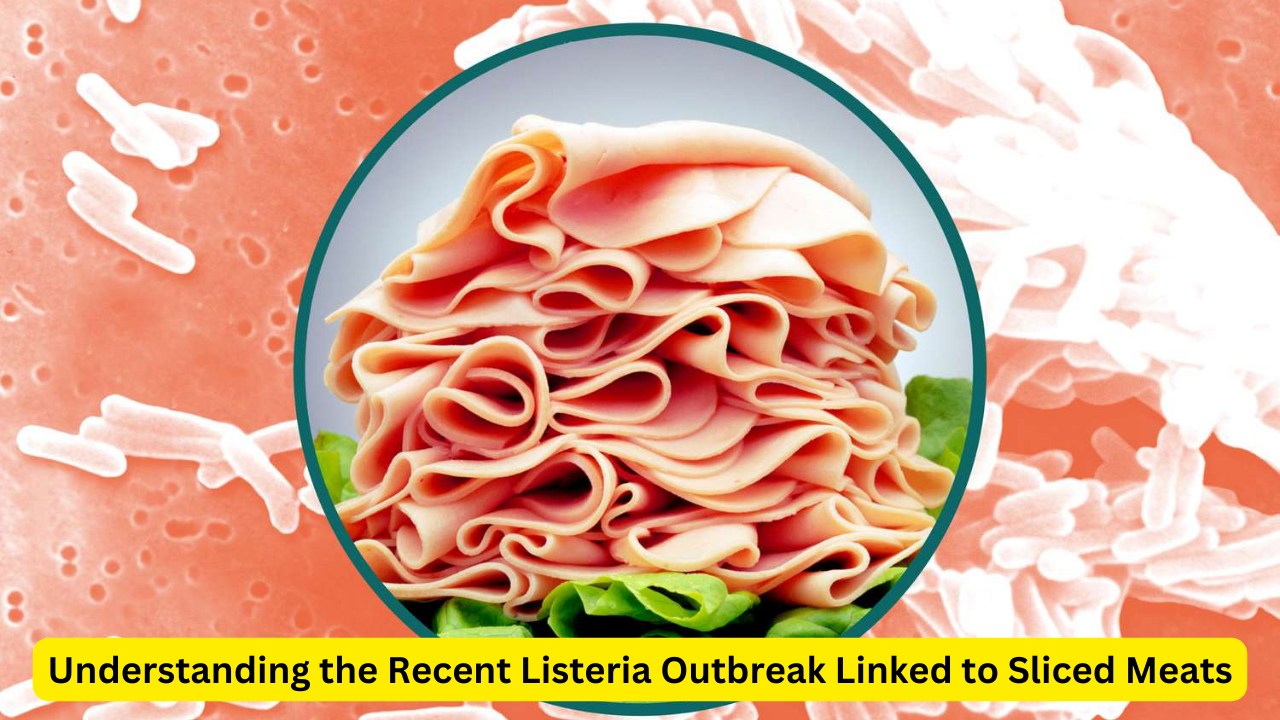Understanding the Recent Listeria Outbreak Linked to Sliced Meats

Understanding the Recent Listeria Outbreak Linked to Sliced Meats. The recent listeria outbreak has captured the attention of health officials and the public alike. Linked to sliced meats from various deli counters, this multi-state outbreak has led to numerous hospitalizations, particularly in Maryland. The Centers for Disease Control and Prevention (CDC) has issued a warning advising people to avoid eating deli meats unless they are thoroughly heated before consumption. This advisory stems from the difficulty in identifying the specific type or brand of meat responsible for the outbreak. Here, we provide a comprehensive overview of the listeria outbreak, its implications, and safety measures.
The listeria outbreak linked to sliced meats underscores the importance of food safety and the need for vigilance in handling and consuming deli products. While health officials continue their investigation, adhering to CDC guidelines can help mitigate the risk of infection. Stay informed, stay safe, and ensure that all deli meats are thoroughly heated before consumption.
What is Listeria?
Listeria is a type of bacteria commonly found in soil, water, and some animals, including poultry and cattle. It can lead to listeriosis, a serious infection usually caused by eating food contaminated with the bacteria. The infection primarily affects pregnant women, newborns, older adults, and individuals with weakened immune systems.
Symptoms of Listeriosis
Listeriosis can cause a range of symptoms depending on the person and the part of the body affected. The most common symptoms include:
- Fever
- Muscle aches
- Nausea
- Diarrhea
In more severe cases, symptoms can escalate to include headache, stiff neck, confusion, loss of balance, and convulsions. For pregnant women, the infection can lead to miscarriage, stillbirth, premature delivery, or life-threatening infection of the newborn.
Details of the Current Listeria Outbreak
Source of the Outbreak
The CDC has linked the current listeria outbreak to sliced meats obtained from various deli counters. However, the exact type of meat or brand has not been identified. This makes it challenging to pinpoint the specific source and take targeted actions to remove the contaminated products from the market.
Impact and Spread
The outbreak has predominantly affected individuals in Maryland, leading to multiple hospitalizations. The CDC’s ongoing investigation aims to trace the origins of the outbreak and prevent further cases. As of now, no fatalities have been reported, but the situation remains critical.
CDC’s Recommendations
In light of the outbreak, the CDC recommends that people:
- Avoid consuming deli meats unless they are heated to an internal temperature of 165°F or until steaming hot just before serving.
- Refrigerate deli meats properly, keeping them at 40°F or lower.
- Avoid cross-contamination by ensuring that ready-to-eat foods are not stored with raw foods and that surfaces and utensils are cleaned thoroughly after contact with deli meats.
Understanding the Risks of Deli Meats
Deli meats are often linked to listeria outbreaks due to several factors:
- Cross-contamination during slicing and packaging.
- Improper storage temperatures which can promote bacterial growth.
- Extended shelf life, allowing more time for listeria to proliferate.
High-Risk Groups
Certain populations are at higher risk of severe illness from listeria:
- Pregnant women: They are about 10 times more likely to get listeriosis compared to the general population.
- Newborns: The infection can be life-threatening.
- Elderly individuals: Those aged 65 and older are more susceptible to serious complications.
- Immunocompromised individuals: Those with weakened immune systems are at higher risk of severe infection.
Preventive Measures and Best Practices
Safe Handling of Deli Meats
To reduce the risk of listeria infection, it is essential to follow safe handling practices:
- Heat deli meats thoroughly before consuming.
- Store meats at the right temperature.
- Use clean utensils and surfaces to avoid cross-contamination.
General Food Safety Tips
In addition to handling deli meats safely, adhere to general food safety guidelines:
- Wash hands with soap and water before and after handling food.
- Separate raw and cooked foods to prevent cross-contamination.
- Cook foods to safe temperatures to kill harmful bacteria.
- Refrigerate perishable items promptly to slow bacterial growth.
Long-Term Implications and Future Precautions
The long-term implications of the recent listeria outbreak extend beyond immediate health concerns. It has highlighted significant gaps in food safety protocols and the need for more stringent regulations and better tracking systems. Retailers and suppliers must enhance their safety measures to prevent cross-contamination during slicing, packaging, and storage. This includes regular sanitation of equipment, enforcing strict temperature controls, and ensuring thorough staff training on hygiene practices. Moreover, consumers should be more vigilant about the sources of their food and the conditions under which it is stored and prepared. Public health education campaigns can play a crucial role in informing the public about the dangers of listeria and effective prevention strategies. By fostering a culture of food safety, we can mitigate the risks of future outbreaks and protect vulnerable populations.
Collaborative Efforts and Technological Advancements
Combating listeria requires collaborative efforts from various stakeholders, including government agencies, food producers, retailers, and consumers. The implementation of advanced technologies, such as rapid testing methods and blockchain for supply chain transparency, can significantly enhance the detection and tracking of listeria in food products. These technologies allow for quicker identification of contamination sources and more efficient recalls, thereby reducing the spread of the bacteria. Additionally, research and development in food safety can lead to innovative solutions that minimize the risk of contamination. Enhanced surveillance systems and better communication channels between health officials and the public are also vital in managing outbreaks. By leveraging these advancements and fostering cooperation across the food industry, we can create a safer food environment and prevent the recurrence of listeria outbreaks.
Conclusion
The listeria outbreak linked to sliced meats underscores the importance of food safety and the need for vigilance in handling and consuming deli products. While health officials continue their investigation, adhering to CDC guidelines can help mitigate the risk of infection. Stay informed, stay safe, and ensure that all deli meats are thoroughly heated before consumption.




